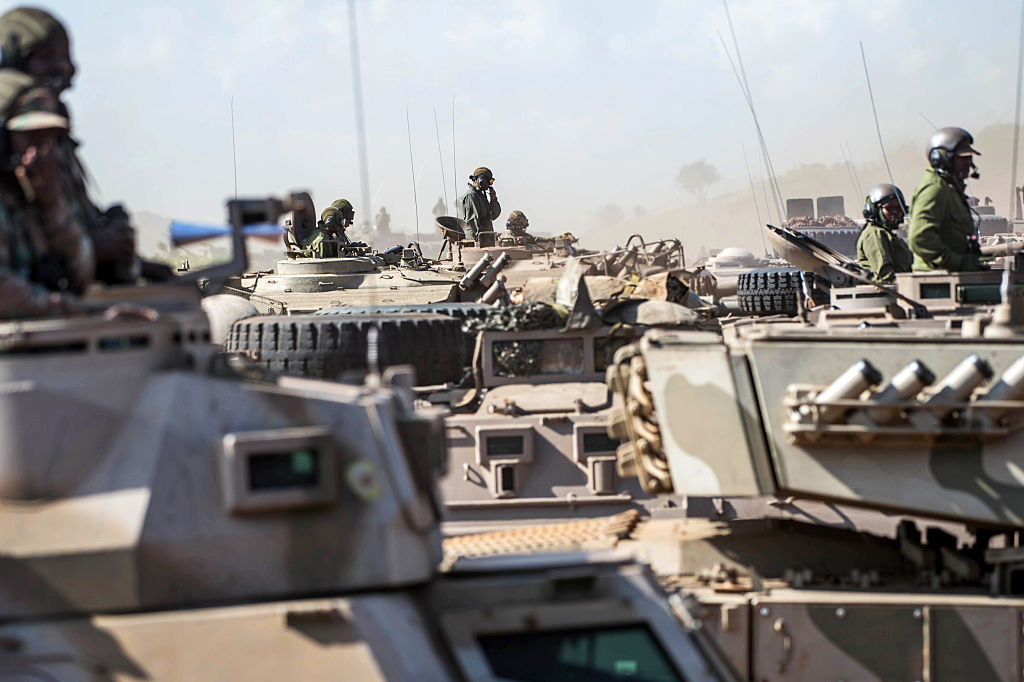ADF STAFF
South African troops working with the Southern African Development Community (SADC) have been deployed to the conflict-ridden eastern Democratic Republic of the Congo (DRC) since December, raising concerns among some South African military observers.
The decision to deploy the troops was reached at an SADC summit in May 2023. The SADC force, known as the SADC Mission in DRC (SAMIDRC), includes troops from Malawi and Tanzania.
The troops are tasked with countering more than 120 rebel groups, including the notoriously violent M23, which in late 2023 launched deadly new attacks near the Rwanda border. It controls several roads and towns in the North Kivu province, including Bunagana, Kitchanga, Kiwanja, Mweso, Rubaya and Rutshuru.
The deployment coincides with the phased withdrawal of the United Nations peacekeeping mission in DRC (MONUSCO), which is expected to withdraw all troops from the country by the end of December 2024. The
East African Community
Regional Force (EACRF) began withdrawing troops from the DRC in December 2023.
Kobus Marais, South Africa’s Democratic Alliance shadow defense and military veterans minister, denounced the South African National Defence Force (SANDF) deployment as “reckless,” arguing that it does not have the capacity to effectively pursue counterinsurgency efforts.

“Perhaps the greatest risk the SANDF faces is their adversary — M23 — has operated in eastern DRC for many years and is familiar with the terrain,” Marais told defenceWeb. “Unless the intervention force, apparently led by the SANDF, is well constituted in terms of size and rapid mobility it would be at the mercy of M23 rebels adept at guerrilla tactics.
“This is precisely why MONUSCO and the East African Community Regional Force (EACRF) failed to end the M23 rebellion in eastern DRC.”
Congolese authorities bemoaned MONUSCO’s failure to protect civilians long before the U.N. Security Council in December voted to begin the phased withdrawal of its 14,000 troops. MONUSCO has been the subject of persistent protests and civilian unrest.
DRC President Felix Tshisekedi also was dissatisfied with the EACRF’s lack of military engagement with the M23 and accused its forces of collusion with the group. The EACRF is composed of troops from Burundi, Kenya, South Sudan and Uganda.
Echoing concerns of some military experts, Marais said SADC troops will need proper air cover as they operate in the hostile North Kivu terrain.
Lt.-Gen. Fall Sikabwe, coordinator of DRC’s military operations in North Kivu, however, expressed confidence in the SADC forces.
“These are professionals who are well equipped and well trained — units that can reverse the situation on the ground,” Sikabwe told Agence-France Presse.
Tasked with overseeing SAMIDRC’s operational progress, SADC Executive Secretary Elias Magosi in late January visited SAMIDRC Force Commander, South African Maj. Gen. Monwabisi Dyakopu, where he observed troops “properly equipped and ready to execute their mandate.”
“As SADC, we are determined to restore peace and security in eastern DRC and add to the record of our defense, institutional, socio-economic and peace and security achievements and milestones,” the SADC said in a statement.
Delphin R. Ntanyoma, a visiting researcher of the University of Leeds, wrote in The Conversation that it is risky for forces to focus only on the M23 while so many other groups, including the Allied Democratic Forces, wreak havoc in the region.
“The SADC mission in the DRC will … be taking on multiple rebel forces in a vast area with complex politics,” Ntanyoma wrote. “It runs the risk of having its efforts criticized just like those of the East African Community because of its limited capacity to tackle the underlying causes of violence in eastern Congo.”
Ntanyoma, who is Congolese, also warned that the SADC force could be outnumbered in the vast region, while its presence may antagonize the East African Community, which the DRC joined two years ago. Ntanyoma also said that the SADC deployment may offer Rwanda more opportunities to “exploit” the M23, although Rwanda denies that it supports the group.
Although the DRC and M23 agreed to a cease-fire ahead of general elections in December, tensions in the region show no signs of easing.
The DRC was accused of violating the cease-fire in mid-January when drone strikes reportedly killed two M23 commanders in rebel-held territory in North Kivu.
“The M23 has understood the message sent to it by the Kinshasa regime and will respond accordingly,” M23 spokesperson Lawrence Kanyuka said in a statement.

